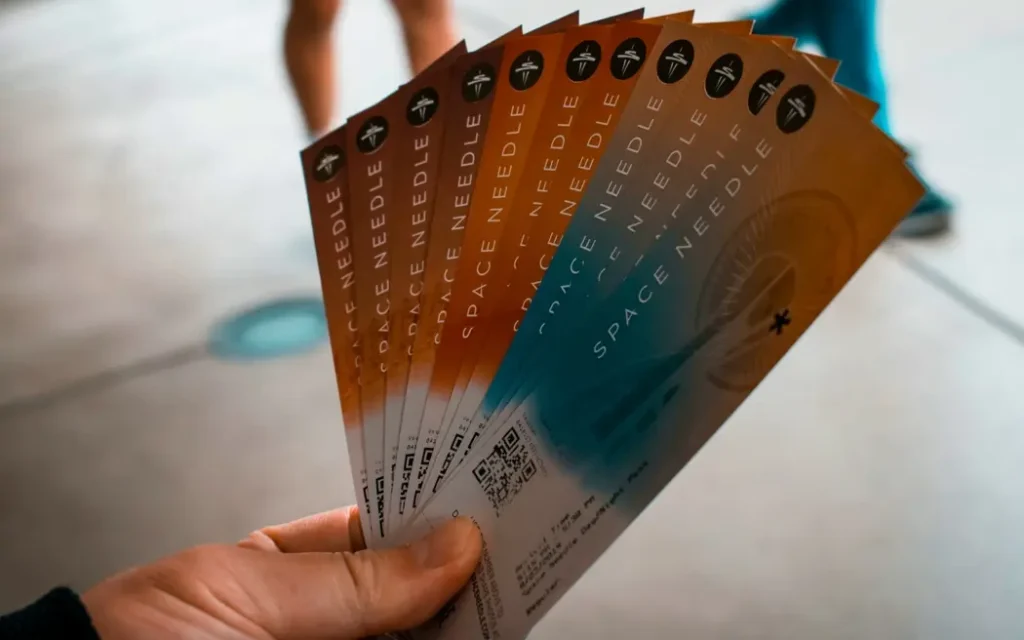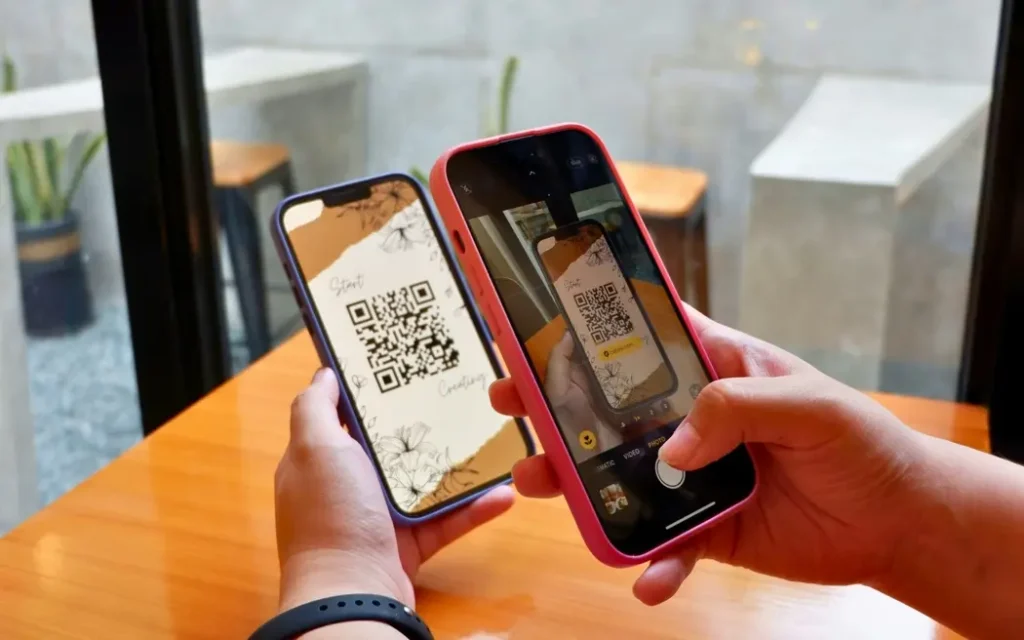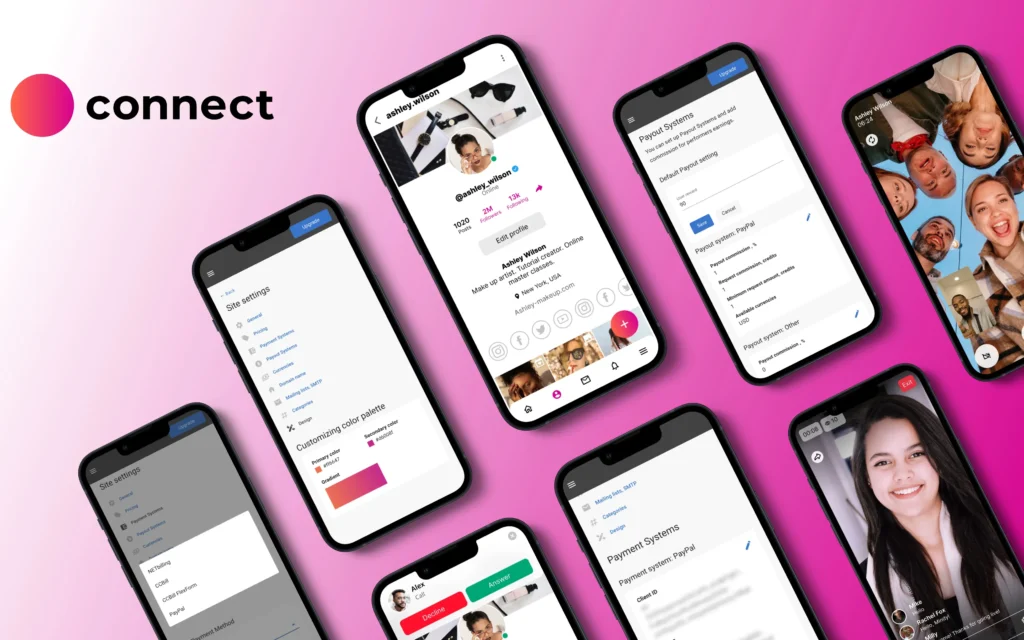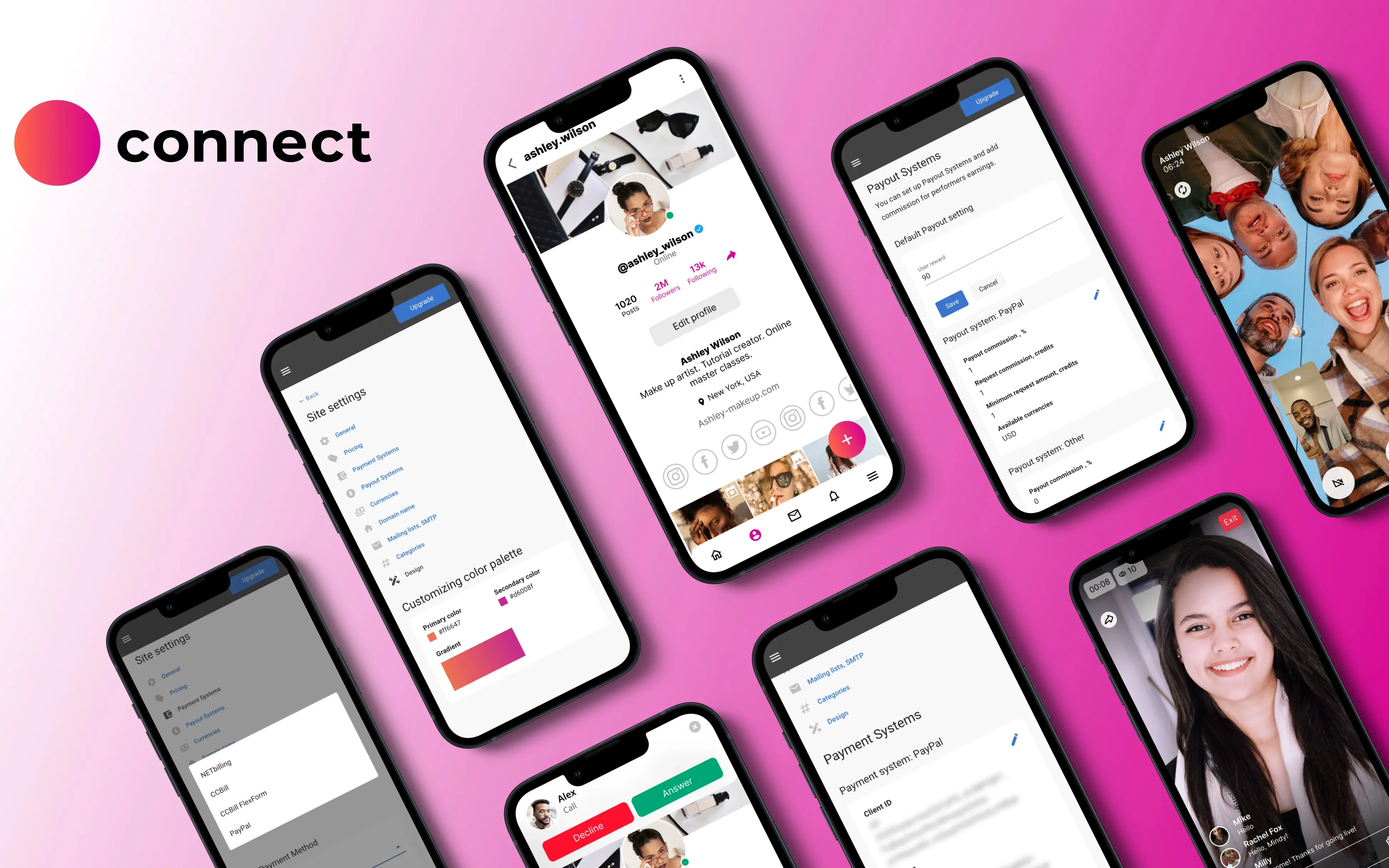Virtual Tickets Guide for 2026: Monetize Your Events
Find out how virtual tickets can make your registration process easy and simple. Learn how creators and entrepreneurs can build ticket pricing based on advancements in technology and providing multiple options for tiers and packages with white-label technology.

virtual tickets
Virtual Tickets: Definition and Benefits
When the general public thinks about virtual tickets, the first thing that pops into their mind is that a virtual ticket is simply a digital version of the paper ticket. It is, but it is much more. A virtual ticket is not just a barcode on your cellular device. It is your virtual key to experiences, communities, and business opportunities that are now held online.
For event planners, these tickets are an easy, cost-effective, and flexible alternative to expanding reach while at the same time conserving costs. Gone are the days of printing paper passes or addressing shipped items. Everything is done mundanely. And this is relevant for your meeting participants who receive virtual event tickets virtually, either by email or via an app, while you save time, resources, and complications.
Another advantage of virtual tickets is that the virtual event registration is quicker and generally easier to organize than it was just a few years ago. So, registrations “sync” with the ticket processing software, and everyone who registered automatically gets their ticket instead of having to check in to see if their registration is on a spreadsheet for ticket processing.
Why Worth Using Virtual Tickets?

The experience for all attaches is equally, if not more, advantageous. Access is easy and faster—open the phone, scan the QR code—not even having to worry about having a paper ticket to be lost in your bag or arriving late. In addition, many of the event organizers are offering the same access key to listen to the recorded on-demand sessions. This made access to tickets that much more valuable.
What about the smaller creator or startup who may not have much to contribute to the monetization of live events? The good news is that you can sell tickets free with particular platforms that permit ticket processing without even charging for the ticket, or by way of sponsorships or donations as an alternative monetization model to facilitate the economic viability of earning money for events. This approach gives everyone fair access to becoming financially viable in the live event space.
Ultimately the benefits of having virtual tickets are more than practical. They are empowering. Virtual tickets simplify logistics, generate revenues, and create a connection between the event planner and audience.
The Tech Stack Behind Virtual Event Tickets

To sell or manage virtual tickets in 2026, you need the right tech stack. Look at the tech stack for your event as the foundation of your event—without a solid foundation you will have problems getting great content to people in a seamless way.
Core Components You Can’t Skip
Every tech stack is going to include a ticketing platform. This is where attendees purchase tickets, register, and receive confirmations. In addition to that, you will need a payment gateway—people expect fast and secure checkouts—whether they are using their credit card, PayPal, or even digital wallets. Finally, we are talking about online experiences, so you’ll need a streaming service or webinar integration—that is the way in which you deliver the event to your audience.
Features That Make Life Easier
All platforms are not created equal. The best ticket platforms allow you to customize your branding so that your event looks professional. They also provide multi-device access; attendees are going to join from a laptop, phone, and tablet. And let’s not forget about analytics. Detailed reporting of ticket sales and attendance will help you adjust your pricing, fine-tune your marketing, and give you confidence in your next event.
To sum up, the right tech stack is your backstage team. It keeps your show going, keeps the attendees’ experience streamlined, and gives you the data to understand how to grow.
QR Control: Secure Access Management

One of the simplest but most powerful tools in the world of virtual tickets is the humble QR code. It’s more than just a black-and-white square—it’s the key that connects your audience to the event they paid for.
Why QR Codes Matter
First, it provides you with an incredibly fast check-in process. This is beneficial if you or other team members check many guests into an event. Instead of typing names on a list, which is time-consuming, you scan a QR code and instantly grant access to an attendee. Time is saved, lines are eliminated, and whether you are hosting a hybrid event with an entrance or having access to online sessions, all is made simple.
Another major reason QR codes are desirable is due to security reasons. Unlike a simple link, it is much harder for someone to copy it or share it without you knowing. A QR code ties the ticket to an individual attendee, immediately reducing the risk of fraud and providing a way to protect your revenue. In a time when health is such a concern, a contactless entry option is the icing on the cake.

How QR Works for Virtual Event Registration
The workflow is so simple:
- Someone buys a ticket.
- The system generates a unique QR code for each ticket.
- Then the attendee receives the QR code via email or app.
- Finally, the attendee scans the QR code to gain access to the event or session.
If you are an event planner reading this—you know how simple and fast check-in will be for your guests when the seamless system is built out for both guest and event planner. If your registration is with hundreds or thousands of attendees, a simple and streamlined process is worth its weight in gold.
Advanced QR Options
Organizers have been getting a little more creative in 2026 with QR code control. Some event platforms are using dynamic QR codes that change every few minutes for added security. Some platforms offer multi-entry passes and several scans over a period of time. There are even platforms that offer VIP-only sessions assigned to a unique QR code. All are ways to increase QR code engagement, offering both the organizer and attendee more flexibility.
With QR codes, you are not only granting someone entry to your event. But you are also responsibly managing a seamless and secure way of sending your virtual crowd into a space.
Pricing Plans for Virtual Event Ticketing

Determining the price for virtual tickets is both an art and a science. Set the price too high and you risk losing attendees; too low and you are leaving money on the table. The good news is that there are different models and templates for pricing your virtual tickets, and you can adapt them.
Common Models
| Pricing Model | Description | Ideal For |
| Free with upsell | Provide a free basic ticket in order to attract a larger audience, and upsell on premium content, such as backstage access, recordings, or Q&A sessions. | Events that are looking to grow their audience and revenue through upselling. |
| One-time payment | Attendees pay you one time in order to get access to your event. | Traditional, like conferences, workshops, or events with one session. |
| Subscription-based | Attendees pay you a monthly or yearly fee for access to classes on an ongoing basis, thus stabilizing your revenue. | Creators, educators, or organizers who are hosting multiple recurring events. |
What Influences Ticket Pricing
The cost of a ticket isn’t arbitrary but rather a product of various elements. The size of your event and the expectations of your target audience are significant. A niche workshop of 30 people could charge more per ticket than a larger, significant conference of thousands of people. The type of content also matters—live sessions are inherently priced higher than on-demand replays. Finally, consider your overall objectives. Should you think about the highest amount of reach? Or should your goal be the highest profit?
How to Sell Tickets Free Without Losing Revenue
Yes, you can sell tickets free and still make money. Some organizers depend on sponsorships—that is, the brand pays some costs, gets visibility, and is showcased across your event. Others depend on a donation model where attendees pay what they can. Some organizers have affiliate partnerships; those promoting your event get a percentage of the ticket sales.
Regardless, you are not committed to one specific ticketing model because the organizers have a digital ticketing option. It is very easy to try things out and see what works best for your audience and for your bottom line.
Case Study: An Illustrative Example of Virtual Event Tickets in Action

Imagine a mid-size business conference that has traditionally drawn around 500 people to attend in person each year and would like to expand their reach to international attendees in 2026. But it has previously experienced constraints related to venue space, travel costs, and scheduling. The organizers, however, are concerned about losing a physical connection to in-person events.
The Move to Virtual
With the implementation of a modern ticketing platform, the team is able to develop an efficient and straightforward virtual event registration system for the event. Attendees will be able to purchase tickets online and receive QR codes as soon as they make their purchase and gain access to live sessions that have been established through a virtual event hub. Various tiers of tickets could include a free ticket for keynotes, a paid ticket for workshops, or a premium package that allows access and packages of recordings and attendant one-on-one networking.
Possible Outcomes
- Attendance could go from 500 to 1,800 attendees. Which would also include individuals from multiple countries.
- Revenue could increase, even with a lower cost per ticket, simply because of the increase in reach.
- Feedback would likely report that the QR for entry is convenient and valuable because of the tiered ticket options.
Thinking Forward
Even if this was a hypothetical, hypothetical example, the scenario is—shifting to virtual tickets is not just about saving costs. It opens the door to revenue opportunities, allows international attendees to take part, and overall creates a more inclusive event. A hybrid model is, of course, the next logical step.
Brace yourself to learn how virtual tickets can transform an event in your community to reach the world. A seamless experience for both you, the organizer, and everyone attending.
Want a White Label and 0% Commission?

It’s evident that virtual tickets can create real possibilities for creators, coaches, and event organizers. However, the downside is many platforms take a large percentage. Transaction fees and commissions can take away from the margins, while society’s evoking it differs—an event now does not look like your event. The arena of event delivery and selling of tickets feels more ‘theirs’ than ‘yours.’
This is why many organizers are starting to look at new options. What if you could quickly set up a white-label solution, keep 100% of the sales, and put your branding on the checkout page? And very quickly develop various payment models to suit your event delivery, without any fees on your end? Wouldn’t that be nice?
If you are reading this like you, now is a good time to discover a white-label opportunity with fair pricing as well as professional tools, introducing Scrile Connect.
Scrile Connect: Your Partner in Virtual Ticketing Success

Scrile Connect is a completely white-label solution that allows creators, coaches, educators, and businesses to sell access to their events while maintaining their own unique brand identity. It is an entirely customizable platform that allows you to issue and manage virtual event tickets (live or recorded) without having to give a chunk of your revenue over to a traditional ticketing site.
Like other ticketing sites, tickets are issued, redeemed, and managed by the platform. But unlike other ticketing sites, it’s 100% white label, which means that attendees see your brand and your logo—not someone else’s.
The Key Benefits of Scrile Connect
- 0% Commission—You keep every dollar you make from your ticket sales.
- Flexible monetization models—Set up subscriptions, pay-per-view, donations, or even free tickets with sponsorships.
- Custom checkout – Build a branded, smooth buying flow that expresses how you work.
- QR integration—Provide attendees with secure, scannable access codes to make for seamless check-ins.
- Scalable technology—Whether you’re hosting a small class workshop or a large national/international convention, Scrile Connect technology scales to your needs.
Why Worth Choosing Scrile Connect in 2026?

Scrile Connect allows you to focus on valuable content for your audience while the platform manages the logistics of payments, access, and automation. And, because we are using a modern tech stack, you and your attendees are prepared for the next trends and surprises the year brings.
Check out Scrile Connect today to see how you can get started selling virtual tickets to your events, your way, with no commission fees.
FAQ: Virtual Tickets

What is the meaning of a virtual ticket?
A virtual ticket is a digital ticket where someone is granted entry to an event without a physical ticket. Instead of getting the ticket printed or sent in the mail, an attendee receives a QR code or single-use link after registration. The process for virtual event registration is simpler, quicker, and more secure for organizers and attendees alike.
What is online ticketing?
Online ticketing is the process of hosting, purchasing, selling, and managing an event ticket using digital tools. Event attendees can reserve or purchase their tickets directly online for any event, be it a concert, festival, workshop, or webinar.
What is the difference between an e-ticket and a regular ticket?
An e-ticket is a contemporary, digital format of a paper ticket, which comes in the form of an email, downloaded to a mobile wallet (such as an Apple wallet), or accessed by a QR code. A ‘regular’ ticket is typically denoting a hard copy paper ticket you would get in the mail or that you would receive when purchasing a ticket in person. E-tickets have become the generally accepted standard for virtual events, as it relates to user experience, security, and smooth integration. E-tickets could also seamlessly incorporate options for either self-check-in or a fully automated check-in.
Conclusion: Virtual Tickets in 2026 and Beyond

To sum up, virtual tickets have transformed the organization, marketing, and delivery of events, offering solutions for registering for a digital event, secure QR access, and flexible pricing, for example. Virtual tickets are providing both organizers and attendees with more power to undertake activities that previously were restricted due to a physical in-person experience. The transition to virtual events has transformed access to global audiences, provided new options for lowering costs, and facilitated new ways for creators to monetize their events in a way that did not previously exist.
Platforms like Scrile Connect have taken this one step further, offering a white-label solution with 0% commission, checkout, dedicated pages, and QR code integration. Regardless if you are organizing a small workshop or a large conference, or offering on-demand content, you should take comfort knowing that the right technology is in place to deliver an event smoothly and like a professional.
The future of events is digitally connected and flexible, and it is for you to shape. Virtual tickets are the key. Contact our team to learn more about the ready-made solution for successful virtual ticket selling.
Read also
| Article | Why it’s worth reading |
|---|---|
| Increase Ticket Sales Fast: Tactics 2026 | Once your basic setup is ready, this article shows how to actually sell more tickets using scarcity, bundles, promo codes, and simple marketing tweaks that move the needle quickly. |
| Virtual Event Pricing Strategy 2026 | If you’re unsure how much to charge, this piece explains pricing models, tiers, and discounts for virtual events so you can maximise revenue without scaring away your audience. |
| Sell Event Tickets Online: Playbook 2026 | After you’ve set prices, you need a clear funnel: this guide walks through the full journey from landing page to checkout and helps you remove friction points that kill conversions. |
| Best Event Ticketing Software 2026 Review | When you understand strategy, the next step is tools: here you can compare ticketing platforms and choose software that supports your pricing, upsells, and access control logic. |
